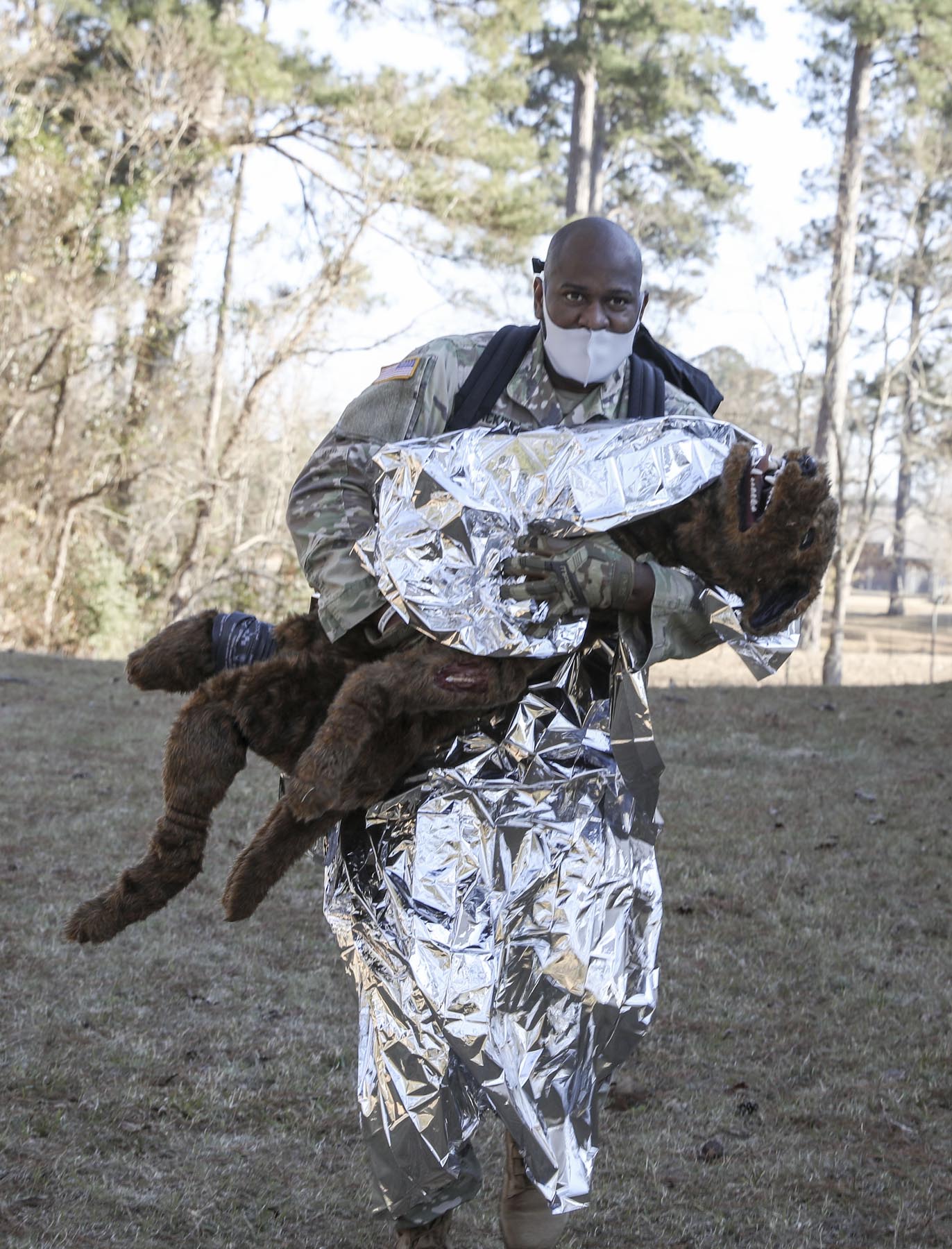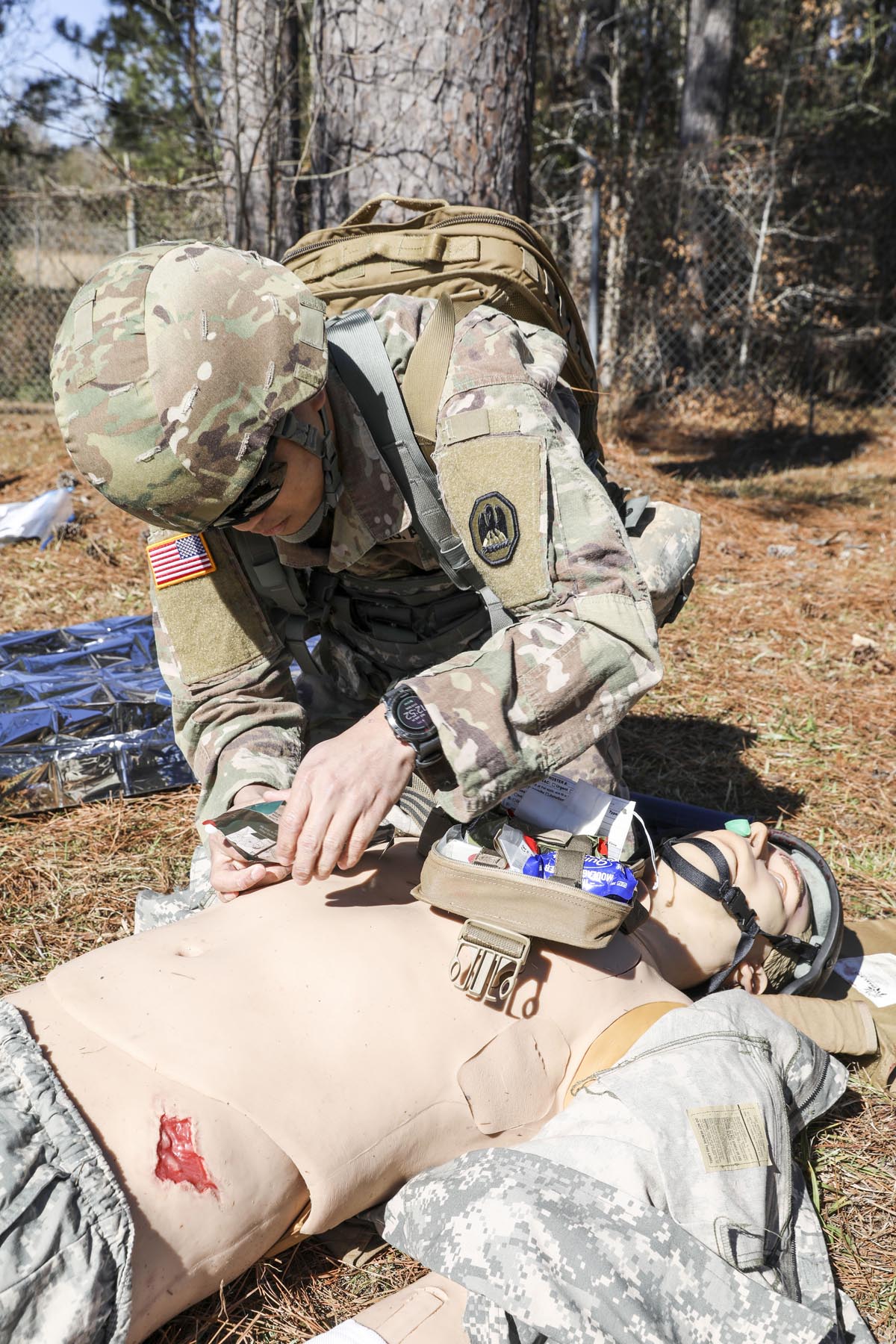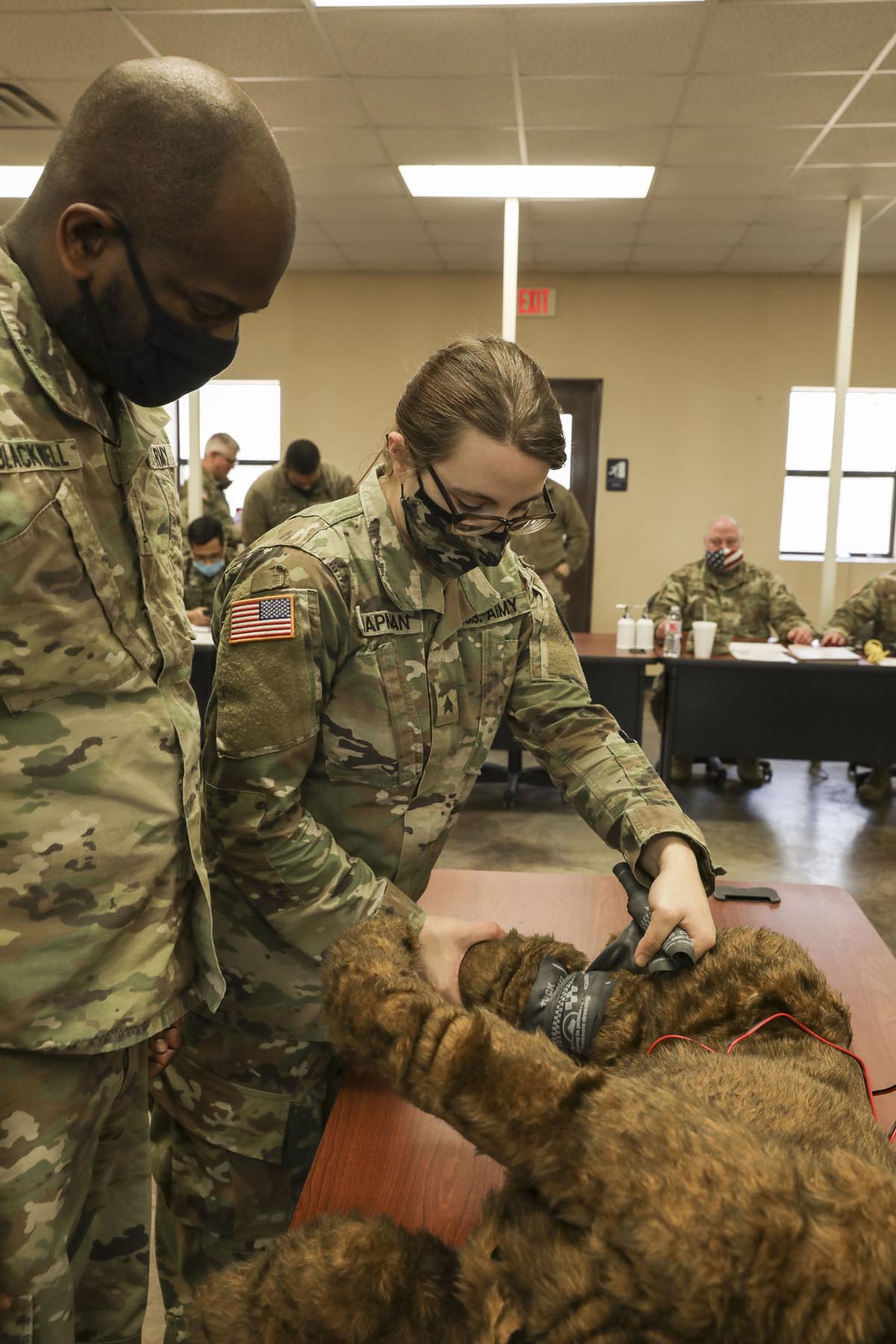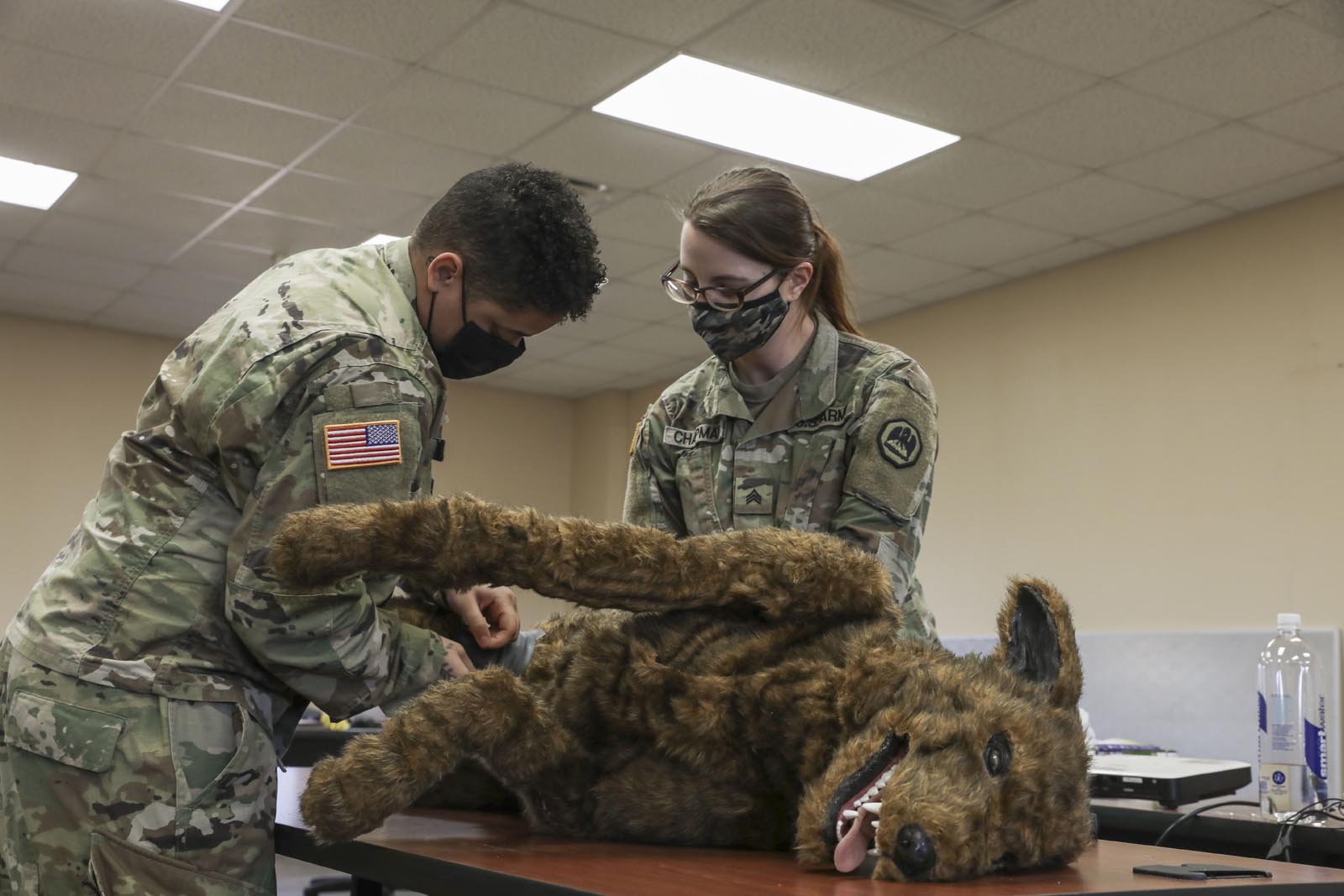By Staff Sgt. Noshoba Davis, Louisiana National Guard Public Affairs Office

PINEVILLE, La. – The Louisiana National Guard’s combat medic sustainment program recently conducted a 10-day course for combat medics at Camp Beauregard in Pineville, Louisiana, Jan. 20-30.
A total of 14 medics participated in the course to renew their National Registry of Emergency Medical Technicians (NREMT) and CPR certifications, which are required to be renewed every two years.
“Medics are required to do 72 hours of continuing education, and an additional 24-hours of training in order to keep their military occupational specialty (MOS). We are one of the few MOSs required to keep a civilian certification,” said Prairieville, Louisiana native Sgt. 1st Class Howard Bushey, combat medic sustainment program director. “Medics have different options for that additional training, such as 24 hours of online training, college medical courses or working full time as an EMT.”
In addition to managing battlefield trauma, treating heat and cold injuries, starting IVs and administering medications, medics are now taught K-9 Tactical Combat Casualty Care, which focuses on the treatment of service dogs in the field when no vet is available.
“Adding the K9 training is important because not only will we most likely be the source of care if a K9 is injured, but there are certain things a medic needs to know,” said Berwick, Louisiana native Sgt. Kennedy Chapman, assistant combat medic sustainment program director. “This course teaches medics not only how to effectively treat a K-9, but also how to handle a K-9 properly without being bitten or injured.”
Medics use a fake training dog from Fort Polk near Leesville, Louisiana to become familiar with the differences in required

equipment, anatomy and treatment required for K-9s. Medics are taught how to properly perform interventions, such as applying a tourniquet to a wound, checking vital signs and how to clear K-9’s airway.
“Treating a K-9 is not something we typically think about as a medic, so this training is extremely important for us,” said Pineville native Sgt. Caleb Frost, a flight medic with G Company, 2nd General Support Aviation Battalion, 238th Aviation Regiment.
Once all classroom hours have been completed, medical and trauma lanes are conducted to evaluate the medics. While conducting the lanes, medics are evaluated on their execution of the combat casualty assessment and medical assessment of a patient.
“The lanes at the end of the training were the best part of the training for me. We went through all levels of patient care from point of injury to being medically evacuated and finally a hospital setting,” said Frost. “It is important for us to constantly train and be up to date on our information and treatments because medicine is constantly changing.”

Bushey hopes to improve the quality of the program and focus on developing the medics’ critical thinking skills. He also wants to incorporate more prolonged field care and possibly have medics compete in a best medic competition within the state.
Bushey said that currently, the LANG currently has the highest sustainment percentage for medics in the National Guard as well as one of the top training programs in the country.






